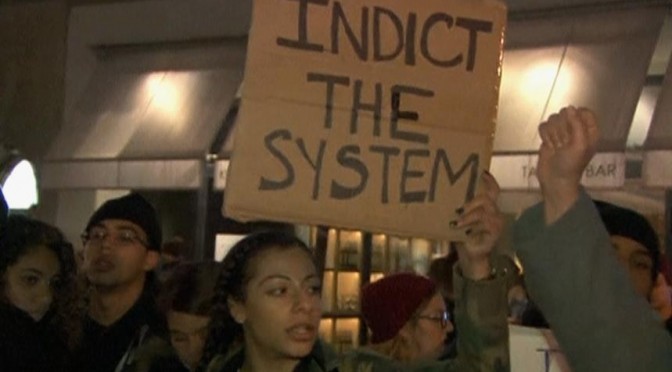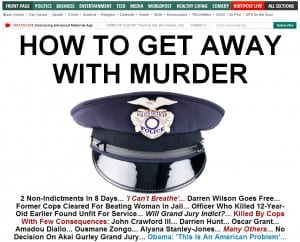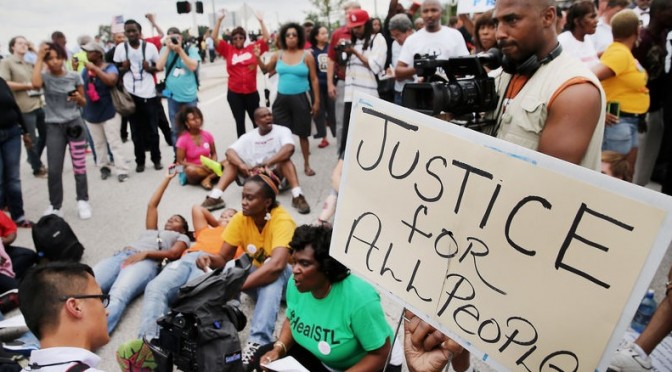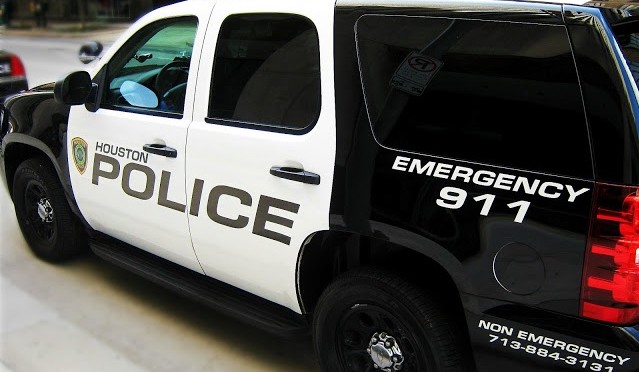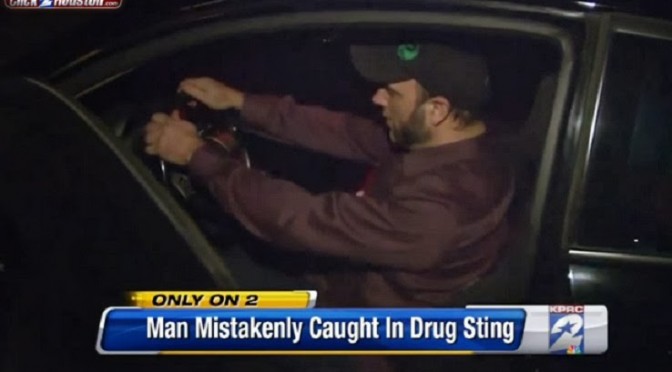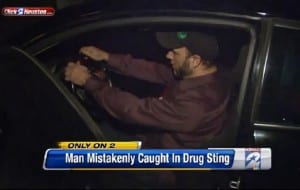There are some days when The Huffington Post really nails their front page. Today would be one of them…
Across the United States, many communities have already erupted in protest following the recent decision not to indict Ferguson police officer Darren Wilson after the death of young Michael Brown Jr.
Shortly before the grand jury decision was even issued in the Darren Wilson case, the city of Cleveland Ohio lost 12 year old Tamir Rice to the actions of yet another police officer… all because the boy was playing with a toy gun. Evidence has already emerged from Cleveland.com that Tim Loehmann– the policeman responsible for Rice’s death, was previously found unfit to even be wielding a firearm in the first place by his former Deputy police chief in 2012.
And just yesterday, the country learned of yet more shocking news… police officers responsible for the death of 42 year old Eric Garner, taken down in a lethal choke hold after the unarmed man resisted arrest, will also not face a proper trial. Learning of the decision, New York City immediately erupted in protests, with more across the country sure to follow.
Garner’s tragic death was captured on video. His last words as a living being on this planet captured for all of the world to see.
“I Can’t Breathe.”
Even the person who filmed this viral footage, Ramsey Orta, was indicted on two felony counts… ones he claimed he was framed for by the officers involved.
Every minute of my life, I have had to wonder if I would ever be in a situation like that of Michael Brown Jr., Tamir Rice or Eric Garner.
Four times in my life, in two different states, I have been improperly and unjustifiably detained by police officers. Each time, I was unarmed. Each time, they were armed. Each time, they had the ability to take my life.
Whatever the facts of any one particular case, these experiences are simply too much a commonality for certain segments of the American population. There is no other way to say it… the fear is real. Our friends, our neighbors are being profiled and unlawfully detained. They are being beaten. They are being killed at the hands of officers across this country. Since 9/11, police forces have become increasingly militarized with unprecedented access to weaponry and training that would only be seen in the theater of war. This is not normal, and it is not how you treat American citizens.
I pray for these families. I also pray for our police officers. For all of the ones that get up, work hard and risk their lives everyday to keep people safe, I pray for them and I thank them.
But among the vast majority of good, hard-working public servants, there are too many doing wrong to simply ignore. These people are hiding in plain sight, and getting away with murder. They may be protecting some communities, but if they are allowed to profile, harass and even kill people without consequence, then they deserve to not only be removed from the force, but brought to justice. Of course, doing so requires having a justice system that is not skewed in their favor.
The time for change is now. We can’t stop with police body cameras. We can’t condone profiling. We can’t stop by a massive reexamination of our nation’s justice system. We can’t allow police militarization to continue. We can’t stop by simply asking police forces to return to a more community-centered structure. We can’t stop by simply reforming police use-of-force practices. We also can’t afford to keep sitting out on critical elections where we have the power to put people in office that truly listen to community concerns. The struggle has to incorporate change at all levels.
So please… march. Protest. Blog. Vote. Support our officers that are doing their jobs. Demand justice against those are abusing their immense privilege and responsibility. Demand justice for those slain.
We need a new system. We can’t breathe.
